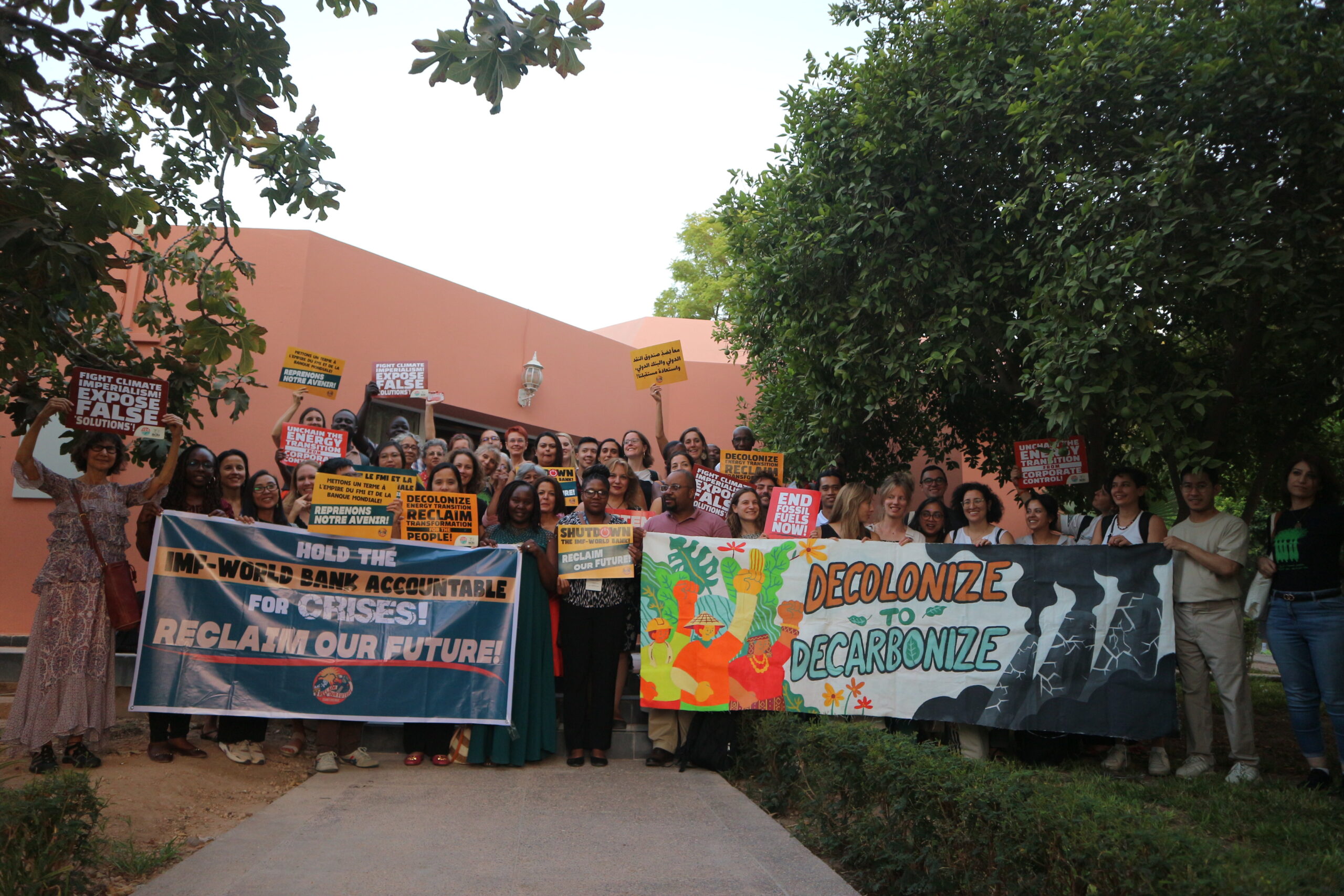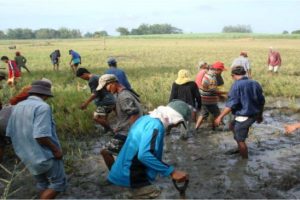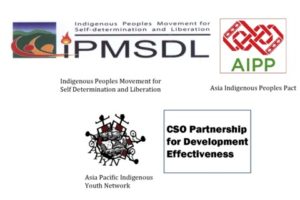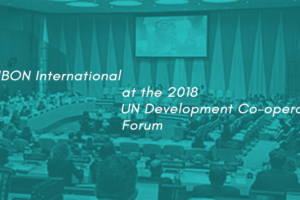9 October, Marrakesh – “It is crucial that social movements along with CSOs come together, and share historical and continuing struggles against the International Monetary Fund (IMF) and the World Bank Group’s (WBG) interventions that have violated people’s rights and sovereignty especially in the global South for almost 80 years,” Jennifer del Rosario-Malonzo, Executive Director of IBON International, said at a conference of social movements and civil society organisations (CSOs) held on 8-9 October 2023 in Marrakesh, Morocco amid the Annual Meetings.
Over 80 participants from various people’s organisations and CSOs across the world gathered in the Reclaim Our Future Conference at the Cadi Ayyad University to build solidarity around people’s struggles against the neoliberal interventions of the IMF and the WBG and their impacts on people’s rights and sovereignty, especially in the West Asia and North Africa (WANA) region, and the African continent.
“Decades of IMF-WBG interventions have perpetuated the underdevelopment of our economies, reliant on debt and foreign capital. Moreover, IMF-WBG take advantage of conflict and fragile situations in the WANA region, and the African continent, such as in Morocco after the earthquake, and even in Palestine under US-backed Israeli occupation, to impose policies that prime countries for plunder and exploitation by foreign corporations,” Liza Maza, General Secretary of the International League of Peoples’ Struggle said.
In the aftermath of the earthquake in late September, the IMF approved a USD 1.3 billion loan for Morocco. The loan aims to “strengthen [the country’s] resilience” against climate and disaster risks by “helping attract foreign direct investments,” and “mobilising private finance” for the country’s climate adaptation and mitigation. Meanwhile, the IMF released a report in the same month, urging the Israel military occupation to lift restrictions on Palestine to improve conditions for foreign investments.
Maza foregrounded the dominant role of the US in the IMF-WBG. “Historically, the US led the establishment of the IMF-WBG. It dominates these institutions through shares and voting power. US corporations influence WBG lending, and profit as project contractors.”
The Conference emphasised perspectives from people’s organisations and civil society on the agenda of the Annual Meetings, which include debt and climate issues.
Dr. Azra Talat Sayeed, Executive Director of Roots for Equity said, “IMF-WBG market-based ‘false solutions’ and continuing financing of destructive projects only exacerbate debt burdens, and further the plunder of the global South. Debt cancellation, especially for developing countries that have contributed the least to climate change, and yet, are facing the worst of its impacts, is crucial, to free up their resources towards climate adaptation and mitigation.”
“Amid crises, the IMF-WBG hide behind so-called “reform,” and co-opt our demands for climate, gender, and social justice to maintain their dominance. We should maximise all avenues to hold these institutions to account for perpetuating today’s system of plunder for profit,” Sayeed added.
The Conference hosted 12 workshops organised by people’s organisations and CSOs on thematic issues such as climate, gender, debt, and austerity. Glasgow Actions Team led an art workshop wherein participants collaborated on banners bearing people’s call to end the WBG’s financing of fossil fuels. The Conference concluded on October 9 with a discussion towards a Declaration critiquing the economic dictates of the IMF-WBG, and questioning the legitimacy of their mandate as development institutions. #



